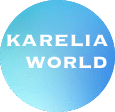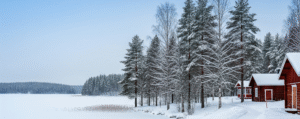German Baltic Sea Coast – Top Guided Tours in the Rügen Island, Lübeck
Guided Tour Offers Rügen Island, Lübeck
The Baltic Sea Coast offers green nature, history, and charming towns. While Germany’s North Sea coast is popular, the Baltic Sea coast also offers some charming summer getaways, often related to more relaxed holiday vibe and beautiful natural landscapes. These areas are popular with domestic german tourists, but they also attract international visitors looking for a different kind of European beach experience.
Rügen Island Multi-Day Hiking Tour
For a deeper dive into the natural beauty of Germany’s largest island, Rügen, you can find multi-day guided hiking tours. An 8-day tour, including 7 nights accommodation with breakfast and dinner, might start from €620-€940 per person, depending on the season, giving you an immersive experience of the island’s famous chalk cliffs and forests. Check out offers from Kleins Wanderreisen.
Lübeck City & Boat Tour
For a unique twist, in towns like Lübeck (a Hanseatic city near the Baltic Sea), you can take a “Splash Bus City Tour.” This is a bus that literally transforms into a boat, offering a combined land and river tour! A 1-hour tour is often priced around €34 per person, giving you a fun and different perspective on the city’s historic waterfront. Explore this quirky option on GetYourGuide.
More curious facts about the Baltic Sea Coast tourism in Germany
Sites like Study in Germany mention that the Baltic Sea resorts are great for activities like kite-surfing, horse-riding, and enjoying the unique “stiff breeze.” Places like Eckernförde and Timmendorf Beach are highlighted for their natural beauty and opportunities for relaxation and sports, especially in spring and summer. They also touch upon the importance of coastal protection in these areas due to climate change, showing a commitment to preserving these natural attractions. You can read more about these destinations and activities on Study in Germany’s North Sea and Baltic Sea page.
Beyond the leisure offers, there’s significant research into the management and adaptation strategies for the German Baltic Sea Coast, especially concerning environmental changes. Projects like “RADOST (Regional Adaptation Strategies for the German Baltic Sea Coast),” coordinated by the Ecologic Institute, focus on developing strategies to cope with climate change impacts like rising sea levels and altered water quality. This shows the long-term commitment to ensuring these summer destinations remain viable and attractive, by linking scientific research with practical applications, including new marketing strategies for beach tourism. This kind of research underlines the efforts to make tourism here sustainable for the long run. Discover more about RADOST’s work on the Ecologic Institute website.



